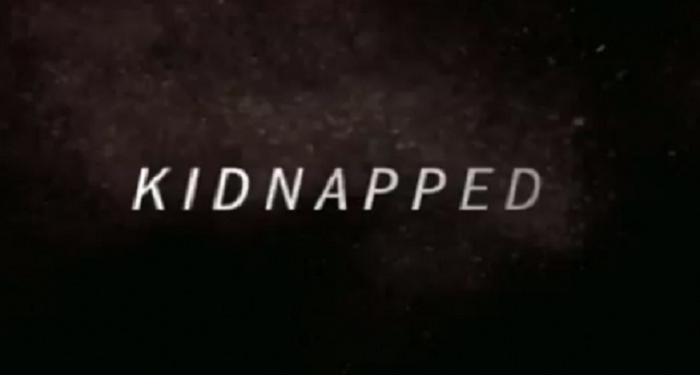Copper cable thieves: Daring fools or economic saboteurs?

Yoliswa Dube
THE recent electrocution of a suspected copper cable thief in Bulawayo should be a lesson to other thieves on the dangers of stealing copper wire from electricity poles and pylons. But the frying to a crisp of the suspected copper thief along Airport Road merely shows how cable thieves are prepared to risk
life and limb because of rich returns from selling stolen copper in neighbouring South Africa.
Trade in stolen copper cables is a thriving business but is hurting the economy.
Parastatals such as Zesa and the National Railways of Zimbabwe are often forced to suspend operations due to the thefts.
Farmers say unscheduled power cuts due to prevalent cable theft, affected their farming activities adversely while ordinary citizens, already enduring load shedding, are forced to go for days without power while Zesa gets replacement cables.
Recently, four men suspected to be part of a smuggling syndicate were arrested at the Plumtree Border Post while trying to smuggle 915 kilogrammes of copper worth $18,300 out of the country. The men were reportedly bound for South Africa to sell the copper when they were intercepted at the border.
“We continuously experience power outages for days on end aside from the usual load shedding schedule. It’s such an inconvenience especially when it comes to perishables that would have been stored in the fridge. Some of them go bad fast as long as they’re not refrigerated.
“Getting ready for work or just doing your daily chores just becomes burdensome without electricity,” said Malcolm Ncube from Trenance suburb in Bulawayo.
He said in as much as Zesa technicians try to rectify faults as a result of copper cable theft, their continuous theft was worrisome.
“Thieves just have no foresight. They only think about the now and are not bothered about how many other people are affected by their actions,” said Ncube.
Theft of copper cables has been cited as one of the factors that derail economic growth.
In April, Zesa said it lost 30,000km of copper cables valued at nearly $180,000 in the southern region of the country through theft. Emganwini, Rangemore, Mahatshula, Woodville, Kensington and Trenance are some of the worst affected areas in the city.
“It’s really unfair that we pay for electricity and not receive the service. Of course it’s not Zesa’s fault that these cables are being stolen but we need a lasting solution.
“We’re tired of talking about the same problem over and over again. We need a stiffer penalty for copper cable thieves,” said Bongiwe Moyo from Emganwini.
She said aside from the inconvenience of not having electricity for days, the problem was likely to continue if lasting solutions were not proffered.
Smugglers have been cashing in on the mineral which they have been stealing from electric and phone lines and selling illegally in South Africa for a street value of 55 rand per kilogramme.
The mineral, which is reportedly in high demand in the neighbouring country, is used for the manufacture of bullets and coffin handles.
The Zimbabwe Electricity Transmission and Distribution Company (ZETDC), a subsidiary of Zesa, has moved to replace copper cables with aluminium ones as a way of curbing vandalism of its infrastructure in a project that started in January.
Copper wire is used in power generation, power transmission, power distribution, telecommunications, electronics circuitry, and countless types of electrical equipment.
Copper and its alloys are also used to make electrical contacts. Roughly half of all copper mined is used to manufacture electrical wire and cable conductors. It has the highest electrical conductivity rating of all non-precious metals.
ZETDC western region engineering manager Engineer Lloyd Jaji said copper was the better material in terms of the transmission of electricity but bemoaned its high price compared to aluminium.
He said copper theft was expensive to the country and not knowing where the copper being stolen went made it even worse.
“As long as the stolen cables have not been replaced, customers lose out. As a country, instead of expanding the power grid, we’re continually taking steps back to replace the cables. It’s a nationwide problem we’re trying to address,” said Engineer Jaji.
He said it was impossible and uneconomical to guard the lines overnight as they ran per metre on the ground.
“Way back, we used to engage locals to assist in guarding the cables, more like a neighbourhood watch, but it was a major risk to the ordinary person. It seems like those who are stealing the cables know what they’re doing despite the risk of being electrocuted.
“Copper cables cost about $180 per meter while the aluminium that could do a similar job costs $7 per meter.
“These thieves steal about 10 spans of copper at a time which is equal to about 4.5km per span. With three conductors per line, it means they’re taking kilometres and kilometres of copper at a time.
“Each region is suffering the same prejudice. At the end of the day, aluminium is not as good a conductor as copper,” said Engineer Jaji.
Stealing copper cables is not only dangerous but a serious offence punishable under the Electricity Amendment Act Number 8/07.
Those caught breaking this law face a jail sentence of 10 years or more.
Copper theft does not only cost Zesa revenue but consumers are forced to stay in the dark for protracted periods of time.
Countless efforts to get a comment from the police were fruitless as they repeatedly referred this reporter from one office to the other.









Comments